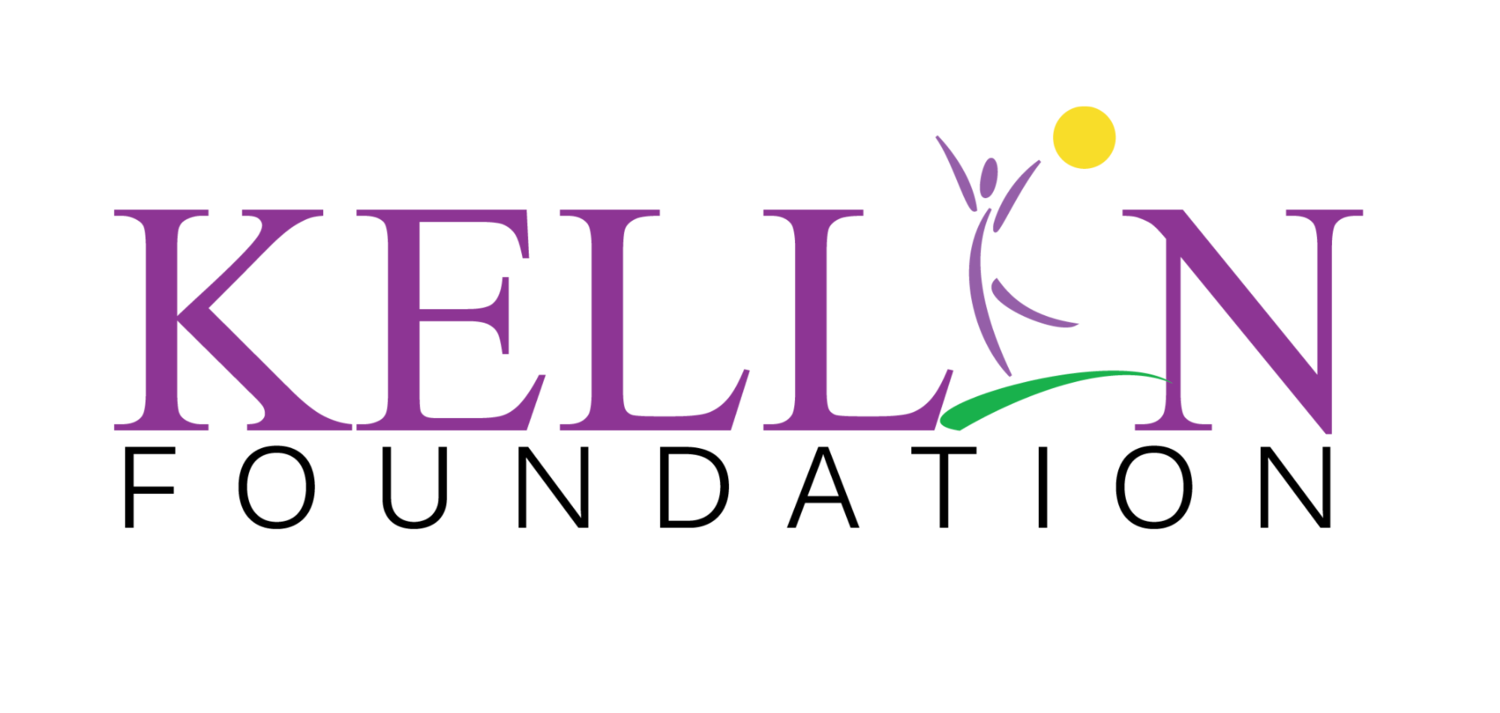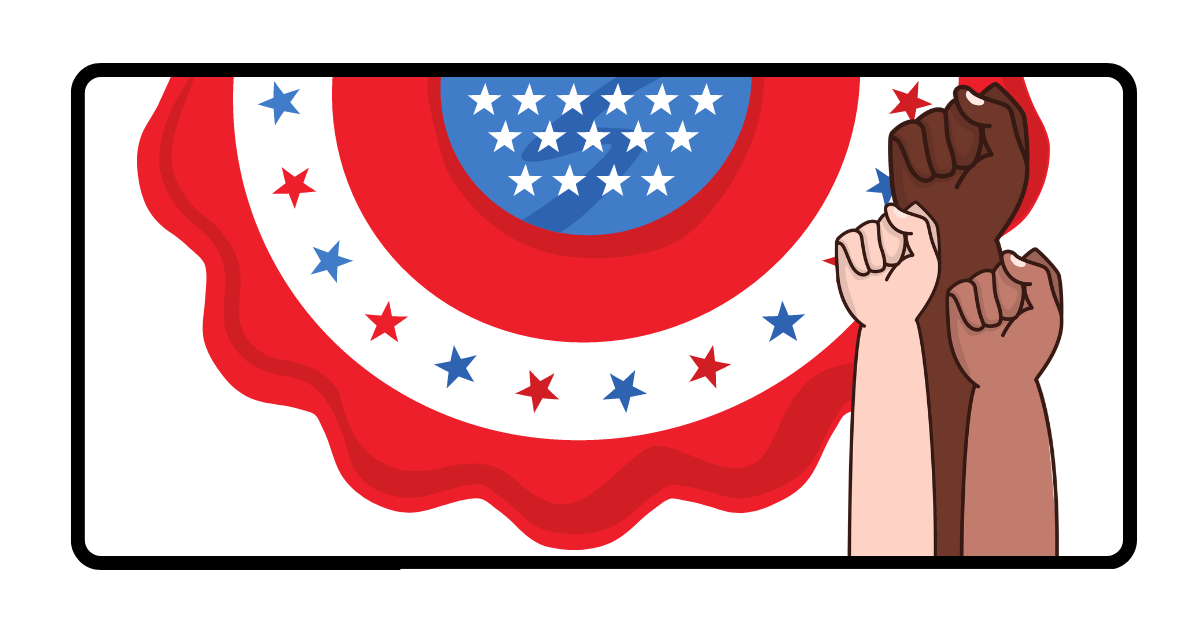Kellin and Kendra Collaborate and Create Inspired Heart Jewelry Pieces!
Join us on August 10th for a special back-to-school shopping event at the Kendra Scott in Greensboro’s Friendly Center. Shop in-store from 1-3 PM that day and twenty percent of all proceeds will benefit the Kellin Foundation because– Kendra Scott is a where fashion meets philanthropy! Kendra Scott has all the trending jewelry and gifts, and Kellin and Kendra even collaborated to create exclusive pieces for this event–check out the Ari Heart necklace and Huggies earrings, they are SO CUTE.
The Kellin & Kendra Collab! The Ari Heart Necklace & Huggies!
Join us on August 10th for a special back-to-school shopping event at the Kendra Scott in Greensboro’s Friendly Center. Shop in-store from 1-3 PM that day and twenty percent of all proceeds will benefit the Kellin Foundation because– Kendra Scott is a where fashion meets philanthropy! Kendra Scott has all the trending jewelry and gifts, and Kellin and Kendra even collaborated to create exclusive pieces for this event–check out the Ari Heart necklace and Huggies earrings, they are SO CUTE.
This partnership between Kendra Scott and the Kellin Foundation is a wonderful opportunity to support community health initiatives. The funds from this 2 hour shopping benefit our mission to provide trauma-informed behavioral health services that directly support children, families, and adults in the community, helping to strengthen resilience and foster healing.
Event Details:
Location: Kendra Scott, 3334 W Friendly Ave #103, Greensboro, NC 27410
Date: , Saturday, August 10th, 2024
Time: 1:00 PM to 3:00 PM
Please join us for this day of shopping and help us spread the word! Thank you for helping us make a positive impact in our community through your support and style!
Celebrating Leaders in Minority Mental Health: Influential Figures and Their Impact
In observance of National Minority Mental Health Month, we honor the pioneers whose groundbreaking work has shaped the field of mental health within minority communities. Their dedication and contributions have not only advanced our understanding of mental health disparities but also paved the way for more inclusive and effective mental health care. Join us as we celebrate the remarkable stories and lasting impacts of these visionary leaders.
In observance of National Minority Mental Health Month, we honor the pioneers whose groundbreaking work has shaped the field of mental health within minority communities. Their dedication and contributions have not only advanced our understanding of mental health disparities but also paved the way for more inclusive and effective mental health care. Join us as we recognize the remarkable and lasting impacts of these visionary leaders.
Dr. Mamie Phipps Clark (1917-1983)
Dr. Mamie Phipps Clark, a pioneering African American psychologist, is best known for her work on racial identity and self-esteem among African American children. Alongside her husband, Dr. Kenneth Clark, she conducted the groundbreaking "doll experiments," which revealed the detrimental effects of segregation on African American children's self-perception. Their research was instrumental in the Supreme Court's decision in Brown v. Board of Education. In one memorable anecdote, a child participating in the doll study remarked, "That's a n***** doll," when asked to choose between a black doll and a white doll, starkly illustrating the internalized racism fostered by segregation.
Dr. Robert Lee Williams II (1930-2020)
Dr. Robert Lee Williams II was a pioneering African American psychologist known for developing the Black Intelligence Test of Cultural Homogeneity (BITCH-100) and his critique of culturally biased intelligence tests. As a founding member of the Association of Black Psychologists, his work emphasized the need for culturally relevant psychological assessments. Dr. Williams often recounted how his own experiences with biased testing in school inspired him to create the BITCH-100, providing a tool that better reflected the cultural experiences of African Americans.
Dr. Martha Bernal (1931-2001)
Dr. Martha Bernal was the first Latina to receive a Ph.D. in psychology in the United States. Her research on ethnic identity and the development of culturally sensitive therapeutic practices has been instrumental in addressing the mental health needs of minority children. Despite facing significant barriers as a Latina in academia, Dr. Bernal’s perseverance led to her becoming a role model for many. Anecdotally, she often shared stories of her early career struggles, including being one of the few women and minorities at professional conferences, which fueled her commitment to mentoring future Latino psychologists.
Dr. Joseph L. White (1932-2017)
Dr. Joseph L. White, often referred to as the "Godfather of Black Psychology," revolutionized the field by emphasizing the importance of cultural context in understanding African American mental health. His work led to the establishment of the Association of Black Psychologists, providing a platform for Black psychologists to address the specific mental health needs of their communities. Dr. White often shared a story about how he was inspired to enter the field of psychology after realizing that the existing theories did not resonate with his own experiences as a Black man, driving him to create a new paradigm.
Dr. Richard Suinn (1933-2024)
As the first Asian American president of the American Psychological Association, Dr. Richard Suinn has been a trailblazer in promoting the mental health needs of Asian American communities. His research on stress, anxiety, and acculturation has shed light on the unique challenges faced by these populations. An inspiring anecdote from his career involves his decision to pursue psychology after facing racial discrimination in the workplace, highlighting his commitment to understanding and addressing the mental health impacts of racism.
Dr. Stanley Sue (1944-2024)
Dr. Stanley Sue's extensive research on the mental health needs of Asian American populations has been groundbreaking. He has highlighted the unique challenges faced by these communities and advocated for culturally competent mental health services. An anecdote from his career involves a study where he demonstrated that Asian American clients often dropped out of therapy early due to cultural mismatches with their therapists, highlighting the need for culturally tailored mental health care.
Bebe Moore Campbell (1950-2006)
Bebe Moore Campbell was a celebrated author and mental health advocate who co-founded the National Alliance on Mental Illness (NAMI) Urban Los Angeles. Her work brought significant attention to the mental health struggles within African American communities, breaking down barriers and reducing stigma. In her book "72 Hour Hold," Campbell drew on her personal experiences with her daughter’s mental illness, providing a poignant and authentic perspective on the challenges faced by families dealing with mental health issues.
Dr. Patricia Arredondo (1945-Present)
Dr. Patricia Arredondo has been a pioneering force in multicultural counseling and organizational development. Her extensive work on cultural competency has influenced guidelines and practices within the field, ensuring that mental health services are inclusive and respectful of cultural differences. Anecdotally, Dr. Arredondo often recounts her experiences growing up in a bicultural household and how this inspired her lifelong commitment to diversity and inclusion in mental health care.
Dr. Linda James Myers (1948-Present)
Dr. Linda James Myers is renowned for her work in African-centered psychology and the development of the Optimal Conceptual Theory. Her research emphasizes the importance of cultural context in understanding mental health and advocates for the integration of African-centered perspectives into psychological practice. Dr. Myers often shares how her travels to Africa deepened her understanding of cultural influences on mental health and inspired her to develop culturally grounded therapeutic approaches.
Dr. Derald Wing Sue (1942-Present)
Dr. Derald Wing Sue is a leading expert on multicultural counseling and the psychological impact of microaggressions. His influential research has brought attention to the subtle forms of discrimination that affect the mental health of minority individuals. Dr. Sue recalls an incident during his early career when he was advised to change his last name to sound less Asian, an experience that fueled his passion for addressing the insidious nature of microaggressions.
Dr. Jessica Henderson Daniel
Dr. Jessica Henderson Daniel, the first African American woman to serve as President of the American Psychological Association, has been a trailblazer in promoting diversity and inclusion within the field of psychology. Her work on the intersection of race, gender, and mental health has advanced our understanding of the unique challenges faced by minority populations. Dr. Daniel often recounts her experiences as a young Black woman in psychology, where she faced numerous barriers but used these challenges to fuel her advocacy for change.
Dr. Lillian Comas-Díaz
Dr. Lillian Comas-Díaz is a clinical psychologist known for her work in multicultural and ethnopolitical psychology. Her research on the mental health needs of Latino populations has advanced the field of cultural competence. One compelling anecdote from her career involves her work with a community affected by political violence, where she used culturally relevant therapeutic techniques to help individuals process their trauma and heal.
Dr. Alfonso Martínez Taboas
Dr. Alfonso Martínez Taboas has focused his research on trauma and dissociation, particularly within Latino populations. His work has highlighted the importance of culturally competent mental health care and the need for effective interventions for trauma within cultural contexts. Dr. Martínez Taboas often shares stories of his clinical practice, where he has seen firsthand the transformative power of culturally sensitive therapy in helping trauma survivors rebuild their lives.
The contributions of these minority mental health pioneers have helped shape and improve the field, ensuring that mental health care becomes more inclusive, culturally sensitive, and effective for all communities. Their dedication to addressing disparities and promoting equity has laid the foundation for ongoing progress in mental health. As we honor their legacies, we are reminded of the importance of continuing their work to achieve mental health equity for future generations.
A Full Circle of Hope: Kellin Foundation at Lindley Park Baptist Church
You know how sometimes, you find a thread from the past that suddenly makes everything click into place? That happened to us here at the Kellin Foundation when we stumbled upon an old newspaper clipping from 1962. It was like a whisper from the past, hinting at the journey that years later would come full circle.
Greensboro News & Record newspaper clipping from 1962 found in the Greensboro Mental Health Society anthology.
You know how sometimes, you find a thread from the past that suddenly makes everything click into place? That happened to us here at the Kellin Foundation when we stumbled upon an old newspaper clipping from 1962. It was like a whisper from the past, hinting at the journey that years later would come full circle.
The article, titled "Mental Health Program to Begin," detailed a meeting at Lindley Park Baptist Church hosted by the Greensboro chapter of the Mental Health Society, a nonprofit that had been in operation in the area since 1940. They showed a film on shyness, followed by a talk from Dr. R.W. Whitener, a local psychiatrist. The aim was simple yet profound: to educate the community about mental health. This little event planted the seeds of awareness in our community, right there in the halls of Lindley Park Baptist Church.
Over the years the Mental Health Society became the longest running mental health non-profit in Greensboro – growing and evolving, first into the Mental Health Association of Greensboro, before rebranding as Mental Health Greensboro in 2018. Fast forward to 2022. That’s when we, the Kellin Foundation, merged with Mental Health Greensboro, combining our missions to provide comprehensive mental health support to our community.
And then, in a twist of fate that felt almost destined, Lindley Park Baptist Church, the very place where those first seeds were sown, decided to close its doors in 2023. But instead of just closing up shop, they gifted their building to us at the Kellin Foundation. This act of generosity brought everything full circle, connecting our past with our present in a powerful way.
When we found that 1962 newspaper clipping in a historical scrapbook, it was like a sign. Our President and CEO, Dr. Kelly Graves said it best: "I teared up and got goosebumps, like the world was telling me this was meant to happen". It was as if the universe was affirming our path and connecting the dots in the most meaningful way.
Today, that very church has become our new home, the Hope Hub. Here, individuals of all ages will be able access mental health services and a comprehensive support system under one roof. From housing assistance to employment resources, once renovated, the Hope Hub will be a sanctuary of healing and hope, continuing the tradition of caring that began within the walls of Lindley Park Baptist Church over six decades ago.
As we carry forward this torch of service and compassion, we’re reminded of the fated connections between past and present. The caring spirit of Lindley Park Baptist Church lives on, not just in memory, but in the tangible acts of support and healing that define our mission at the Kellin Foundation. This is our story, a story that has come full circle, woven together by the threads of community and the its historical commitment to mental health.
Resilience: From the Founding Fathers to Our Everyday Lives
As we celebrate the Fourth of July, it's a fitting time to reflect on the concept of resilience—both in our nation's history and in our personal lives. The journey to American independence was fraught with challenges that required immense strength and perseverance. Similarly, maintaining good mental health today demands a comparable resilience in the face of life's adversities.
As we celebrate the Fourth of July, it's a fitting time to reflect on the concept of resilience—both in our nation's history and in our personal lives. The journey to American independence was fraught with challenges that required immense strength and perseverance. Similarly, maintaining good mental health today demands a comparable resilience in the face of life's adversities.
The American Revolution vividly illustrates the fortitude of those who fought for independence. Consider George Washington, whose leadership was indispensable during the harrowing winter at Valley Forge. In December 1777, Washington led his weary and beleaguered army to this desolate encampment. The conditions were appalling: soldiers lacked adequate clothing, many were barefoot, and provisions were scarce. In letters to the Continental Congress, Washington described the soldiers’ suffering and pleaded for supplies. Despite these dire circumstances, Washington's steadfast resolve and unyielding spirit were evident. One notable instance of Washington instilling hope was his decision to have Thomas Paine’s pamphlet "The American Crisis" read aloud to the troops. Paine’s words, “These are the times that try men's souls,” resonated deeply, reinvigorating the soldiers’ commitment to the cause. Washington’s ability to inspire his men, even as they endured freezing temperatures and near-starvation, exemplifies the resilience needed to overcome profound adversity.
Abigail Adams, wife of John Adams, provides another compelling example of resilience. Living in an era when women had limited rights and roles, Abigail managed the family farm and raised their children amidst the turmoil of war. Her extensive correspondence with John reveals her intellectual prowess and emotional fortitude. Abigail was not merely a passive observer; she was an active participant in the revolutionary dialogue. In one letter, she famously advised her husband to “remember the ladies” when drafting new laws, warning, “Do not put such unlimited power into the hands of the husbands.” Her letters convey a sense of determined resilience and a profound commitment to the revolutionary cause. Abigail’s ability to maintain the household, provide political counsel, and support her husband’s endeavors reflects a strength that was as crucial to the war effort as the soldiers' battles on the front lines.
Equally significant, though often overlooked, are the contributions of Black individuals to American independence. Crispus Attucks, a sailor and escaped slave who had evaded capture for 20 years, played a pivotal role in the events leading up to the Revolution. On March 5, 1770, Attucks was at the forefront of a confrontation between colonial protests and British soldiers, resulting in the Boston Massacre. Attucks was the first to fall, and his death became a rallying point for those seeking independence. His ability to evade capture and live as a free man for two decades before making the ultimate sacrifice highlights his resilience and courage. Attucks’ story parallels the modern struggle against systemic oppression and the fight for justice, showing how resilience is essential in confronting and overcoming deeply entrenched societal challenges.
Peter Salem, an enslaved man emancipated by his owner so he could join the Black Minutemen, is another figure whose resilience is noteworthy. Salem is most famous for his valor at the Battle of Bunker Hill, where he is credited with firing the shot that killed British Major John Pitcairn. Salem continued to serve throughout the war, participating in key battles such as Saratoga and Stony Point. Despite his significant contributions, Salem died in a poorhouse at age 66, his heroism and humanity never fully acknowledged. His story exemplifies the resilience and courage of Black soldiers who fought for a nation that had yet to recognize their full rights. Salem's journey mirrors the ongoing fight for recognition and equality faced by many today, emphasizing that resilience involves both personal courage and the relentless pursuit of justice and dignity.
The resilience of these individuals and countless others during the Revolutionary era cannot be understated. Drawing parallels between these historical figures and modern-day mental health journeys illuminates the enduring nature of resilience. Just as George Washington faced and overcame immense challenges at Valley Forge, individuals today navigate their own battles for mental well-being. Washington’s leadership in dire times is reminiscent of the inner strength needed to confront personal mental health struggles. His relentless efforts to procure resources and maintain morale can inspire individuals to seek help and build support systems when facing their own difficulties.
Similarly, Abigail Adams’ resilience in managing her family and contributing to the revolutionary cause mirrors the strength required in contemporary life to balance personal responsibilities and mental health. Her ability to persevere and provide support, despite overwhelming challenges, highlights the importance of a robust support network and the courage to endure.
The resilience demonstrated by these figures during the American Revolution serves as a powerful reminder of the strength and perseverance required to overcome challenges. As we celebrate the Fourth of July, let us draw inspiration from their stories and apply these lessons to our own mental health journeys. Just as our founders faced their battles with courage and determination, we too can cultivate resilience and emerge stronger from our personal struggles.
At the Kellin Foundation, we are committed to supporting individuals on their path to mental well-being. Seeking help to foster resilience is an act of strength. This Independence Day, let's celebrate our nation's freedom and also the personal victories of resilience in our lives.
Observing National Minority Mental Health Month
National Minority Mental Health Month, observed every July, is a time dedicated to raising awareness about the unique mental health challenges faced by racial and ethnic minority groups. In the quest for justice and equality, we must not overlook the silent struggles within our minority communities. Established in 2008, National Minority Mental Health Month illuminates the disparities and barriers that persist in mental health care for these communities. It calls upon us to confront these issues head-on and strive for a more equitable and inclusive mental health care system.
National Minority Mental Health Month, observed every July, is a time dedicated to raising awareness about the unique mental health challenges faced by racial and ethnic minority groups. In the quest for justice and equality, we must not overlook the silent struggles within our minority communities. Established in 2008, National Minority Mental Health Month illuminates the disparities and barriers that persist in mental health care for these communities. It calls upon us to confront these issues head-on and strive for a more equitable and inclusive mental health care system.
History and Significance
The roots of National Minority Mental Health Month are deeply entwined with the legacy of Bebe Moore Campbell, a fierce advocate for mental health awareness within the Black community and beyond. Campbell’s unwavering dedication to this cause culminated in the formal recognition of this month, providing a platform to confront the disparities and inequities that minority communities face in accessing mental health care.
The significance of this month cannot be overstated. It is a call to action, a reminder that the struggle for justice extends beyond the visible and tangible, reaching into the very fabric of our mental and emotional well-being. The barriers that minority communities face—stigma, cultural misunderstandings, inadequate access to care, and socioeconomic disparities—are not just obstacles but manifestations of a deeper, systemic failure. By addressing these issues, we move closer to a society where mental health care is a right, not a privilege.
The Importance of Mental Health Awareness in Minority Communities
The importance of mental health awareness in minority communities is multifaceted and profound:
Reducing Stigma: In many minority communities, mental health is shrouded in silence and stigma. This silence is a powerful adversary, preventing individuals from seeking the help they desperately need. Increased awareness can break this silence, offering a lifeline to those who suffer in isolation.
Improving Access to Care: Awareness is the key to unlocking access to mental health resources. By highlighting the availability of services, we can guide minority individuals toward the care they need, paving the way for healing and recovery.
Cultural Competence: Mental health care must be attuned to the unique cultural and linguistic needs of diverse populations. Awareness initiatives promote cultural competence among mental health professionals, ensuring that care is both respectful and effective.
Advocacy and Policy Change: Awareness fuels advocacy, driving the push for policy changes that address the systemic issues underpinning mental health disparities in minority communities. It is through this advocacy that we can dismantle the barriers to equitable care.
Kellin Foundation's Impact and Commitment to Racial Equity
The Kellin Foundation is dedicated to supporting the mental health needs of minority communities. Our commitment to racial equity is reflected in our comprehensive programs and services designed to provide inclusive and culturally competent care.
We offer a wide range of services, including individual and group therapy, community outreach, and educational workshops, all tailored to meet the unique needs of minority populations.
Our commitment to racial equity permeates every aspect of our work. This includes continuous training for our staff on cultural competence, advocating for policies that tackle mental health disparities, and forging partnerships with community organizations to ensure our services are aligned with the needs of the communities we serve.
Through our efforts we strive to build a mental health care system that is both inclusive and equitable, one that acknowledges and honors the unique experiences of minority communities. We are dedicated to improving mental health outcomes for all, fostering a society that is healthier, more just, and more resilient.
National Minority Mental Health Month shines a light on the urgent need for mental health awareness and support in minority communities. The Kellin Foundation is proud to be at the forefront of this effort, working to ensure that every individual has access to the mental health care they deserve.
Mental Health and the LGBTQ Community: Challenges and Support Systems
As awareness grows around the unique mental health challenges faced by the LGBTQ community, it becomes evident that, despite significant societal progress, many LGBTQ individuals still grapple with high levels of stress, discrimination, and isolation. The Kellin Foundation is committed to addressing these issues directly and providing robust support systems to promote mental well-being for everyone.
As awareness grows around the unique mental health challenges faced by the LGBTQ community, it becomes evident that, despite significant societal progress, many LGBTQ individuals still grapple with high levels of stress, discrimination, and isolation. The Kellin Foundation is committed to addressing these issues directly and providing robust support systems to promote mental well-being for everyone.
Understanding the Challenges
LGBTQ individuals often encounter discrimination in various areas of their lives, from workplaces to schools, and even within their own families. A 2017 survey by the Center for American Progress found that 25.2% of LGBTQ respondents experienced discrimination in the year prior, with 11.5% reporting that discrimination negatively impacted their psychological well-being. This pervasive stigma can lead to feelings of shame, guilt, and self-doubt, which significantly impact mental health.
Rejection from families and communities can lead to social isolation for many LGBTQ individuals. Research published in the National Library of Medicine shows that family rejection during adolescence is associated with an 8.4 times greater likelihood of attempting suicide, 5.9 times greater risk of depression, and 3.4 times greater risk of illegal drug use. The absence of a supportive network can intensify feelings of loneliness and depression.
LGBTQ youth are particularly vulnerable to bullying and harassment in school settings. According to the 2019 National School Climate Survey conducted by GLSEN, 86.3% of LGBTQ students experienced harassment or assault based on personal characteristics. This can lead to a range of mental health issues, including anxiety, depression, and in severe cases, suicidal ideation. LGBTQ youth are more than three times as likely to attempt suicide compared to their heterosexual peers.
Disparities in healthcare access and quality often result in LGBTQ individuals receiving inadequate mental health care. Research in the American Journal of Public Health highlights that LGBTQ individuals are less likely to have health insurance and more likely to face healthcare discrimination. Fear of discrimination by healthcare providers can also deter them from seeking necessary help. The 2015 survey by the National Center for Transgender Equality reported that 33% of transgender individuals had at least one negative experience with a healthcare provider related to their gender identity.
The Importance of Support Systems
Mental health services that are inclusive and affirming of LGBTQ identities can provide a safe space for individuals to express themselves and receive the care they need. Studies show that LGBTQ-affirming therapy can significantly reduce symptoms of depression and anxiety.
Connecting with others who share similar experiences can be incredibly validating and empowering. Peer support groups offer a sense of community and belonging, which can reduce feelings of isolation and lead to improved mental health outcomes and reduced substance use.
Educational programs that promote understanding and acceptance of LGBTQ individuals can help reduce stigma and discrimination. These programs can be implemented in schools, workplaces, and community organizations. The National Institutes of Health (NIH) emphasizes that educational interventions can lead to greater acceptance and lower rates of bullying and discrimination.
Family acceptance plays a critical role in the mental health of LGBTQ individuals . Familial acceptance is associated with higher self-esteem, better overall health, and lower levels of depression, suicidal ideation, and substance abuse.
Advocacy for legal protections against discrimination is essential. Ensuring that LGBTQ individuals have equal rights and protections under the law can significantly reduce the stress and anxiety associated with living in a discriminatory environment. Legal protections, such as anti-discrimination laws, correlate with better mental health outcomes for LGBTQ populations.
Our Commitment
At the Kellin Foundation, we are committed to supporting the mental health of the LGBTQ community through a variety of initiatives. We offer inclusive mental health services, support groups, and educational programs designed to foster understanding and acceptance. Additionally, we advocate for equitable policies that protect the rights and well-being of LGBTQ individuals.
By promoting understanding, providing support, and advocating for change, we can help ensure that all individuals, regardless of their sexual orientation or gender identity, have the opportunity to thrive. Let’s work together to build a community where everyone feels valued, supported, and empowered.























